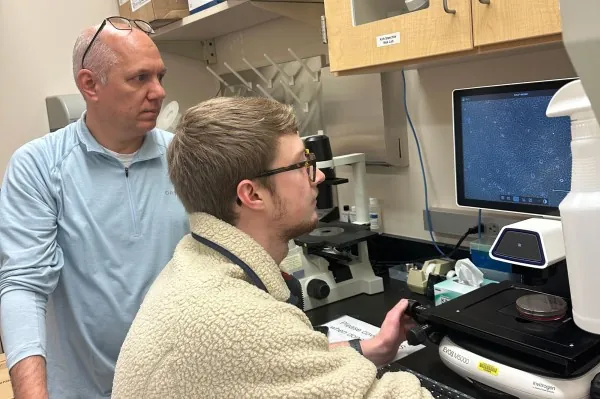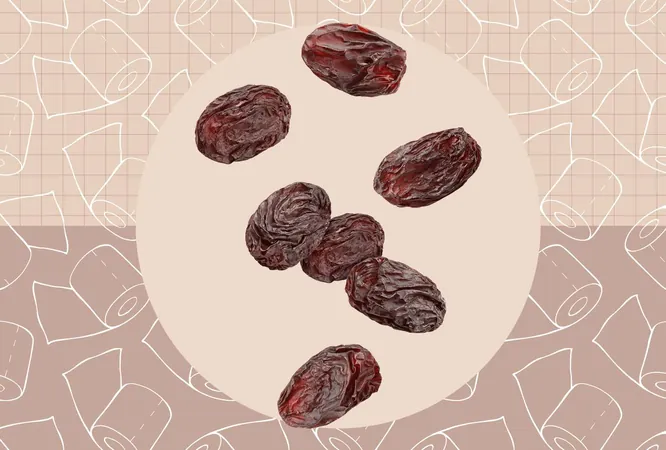
Researchers Unveil Groundbreaking Method to 'Starve' Prostate Cancer Cells
2024-12-18
Author: Mei
Groundbreaking Study Reveals New Method to Combat Prostate Cancer
INDIANAPOLIS — A groundbreaking study by scientists from the Indiana University School of Medicine has revealed a new method to combat prostate cancer by depriving tumors of key nutrients, effectively stunting their growth. The research explores a novel vulnerability in prostate cancer models—a finding that could revolutionize treatment strategies for this prevalent and deadly disease.
Led by Dr. Kirk Staschke and Dr. Ronald C. Wek, both esteemed figures in the field of biochemistry, the team's findings were recently published in Science Signaling. Prostate cancer remains one of the leading causes of cancer mortality among men in the United States, and the conventional approach—targeting testosterone, a hormone that fuels the cancer cells—often leads to resistance, leaving patients with limited options.
Innovative Research on Amino Acids
In their innovative research, the team focused on amino acids, essential nutrients that support rapid tumor cell growth. They discovered that when these nutrients are depleted, a protective protein, GCN2, signals the cancer cells to increase their fuel production. The researchers hypothesized that by inhibiting GCN2, they could starve the cancer cells, hindering their survival.
Partial Surprises in Findings
However, the results were partially surprising. "Inhibiting GCN2 did slow the growth of the tumor cells, but it didn’t kill them," Staschke explained. The team identified a backup mechanism employed by prostate cancer cells—the p53 protein, which is crucial for regulating cell division and nutrient acquisition. The research indicated that tumors retain p53 functionality, which is not the case for many other cancer types.
Pivotal Breakthrough with GCN2 and p53 Inhibition
The pivotal breakthrough came when the researchers discovered that simultaneously inhibiting both GCN2 and p53 could effectively destroy prostate cancer cells. "This study unlocks new possibilities for targeting metabolic weaknesses inherent to prostate cancer, allowing us to not only impair its growth but potentially eliminate these malignant cells altogether," Staschke stated.
Notably, this research included contributions from graduate students Ricardo Cordova and Noah Sommers, alongside collaborators from various reputable institutions, such as the University at Buffalo and Rutgers University. The project received substantial support from prominent organizations, including the National Institutes of Health and the American Cancer Society.
Future Implications and Hope for Patients
As prostate cancer continues to challenge medical professionals, the role of innovative research such as this highlights the potential for developing advanced treatment modalities. This promising breakthrough may pave the way for a new generation of therapies aimed at effectively battling prostate cancer, bringing hope to countless patients and their families facing this daunting diagnosis.
Stay tuned for more updates as this research progresses, and remember—every discovery brings us one step closer to conquering cancer.





 Brasil (PT)
Brasil (PT)
 Canada (EN)
Canada (EN)
 Chile (ES)
Chile (ES)
 España (ES)
España (ES)
 France (FR)
France (FR)
 Hong Kong (EN)
Hong Kong (EN)
 Italia (IT)
Italia (IT)
 日本 (JA)
日本 (JA)
 Magyarország (HU)
Magyarország (HU)
 Norge (NO)
Norge (NO)
 Polska (PL)
Polska (PL)
 Schweiz (DE)
Schweiz (DE)
 Singapore (EN)
Singapore (EN)
 Sverige (SV)
Sverige (SV)
 Suomi (FI)
Suomi (FI)
 Türkiye (TR)
Türkiye (TR)